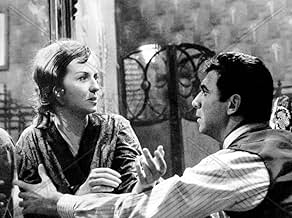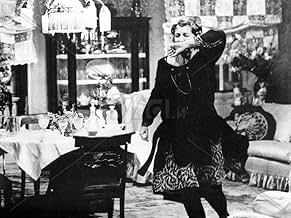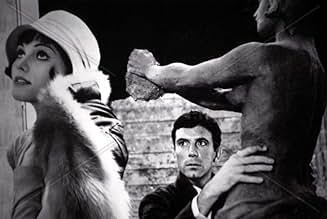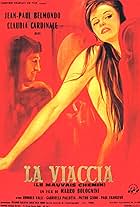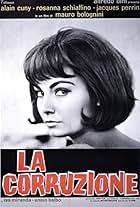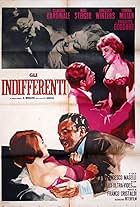Time has its own ways also in terms of movies. I have just finished watching 'Senilità' (the English title is 'Careless') directed by Mauro Bolognini, a prolific and well-known Italian director at the time, author of 46 films between 1953 and 1995, a collaborator of Pasolini who was the script-writer of some of his films. 'Senilità' was released in 1962, the year in which in Italy Michelangelo Antonioni made 'L'Eclisse' and Vittorio De Sica 'The Condemned of Altona'. In many ways, however,'Senilità' seems to have been made in another era.
Time plays an important role in the concept of this film. Bolognini brings to screen a novel by Italo Svevo, whose action takes place in Trieste, but moves the story from the end of the 19th century to 1927. The change is significant not only from a historical point of view, the Adriatic city changing its belonging from the Austro-Hungarian Empire to an Italy hesitating between liberalism and Fascism in the period between the two world wars. Placing the story in a slightly closer era gave to Bolognini the opportunity to shoot in a location in a Trieste that still retained many of the city's characteristics between the two wars, and the resulting cinematography is the most successful part of the film in my opinion. Today the black and white film is used to create 'artistic effects', but in 1962 it was still a bit cheaper than the color film, and the choice was, I think, economical. A decision with a good artistic result.
Changing the place of the story from the introverted Austro-Hungary of the end of the 19th century to the liberated post-World War I atmosphere is not just a change of background. The moralist perspective and the psychological introspection in Sveto's text gain psychoanalytic tones amplified by social differences that remind Neo-realism. We are dealing with a 'romantic square', two men and two women who can not overcome the social and psychological barriers to consume their passions. Sveto's dialogues sound artificial and conventional, and they do not fit well in the period in which the film is placed. The actors' performances are also rhetoric, with the brilliant exception of Claudia Cardinale's appearance. The Italian actress already on the road leading her to super-star status seems to come from another world, not only because of the character's beauty and vulnerability, but also because of the quality of her acting. It's for her and for the cinematography that 'Senilità' is a movie that deserves to be seen.

